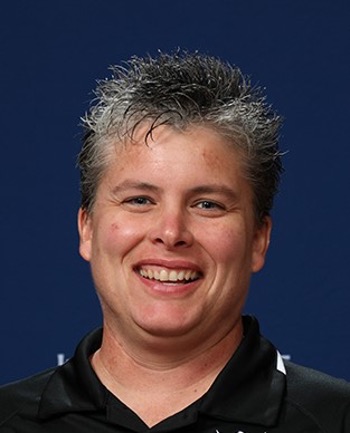Remove and Replace Health Promotion Major – Luther College Chips
Last month, Luther College faculty voted to remove health promotion (HP) majors and minors from the college’s curriculum and to combine health science and exercise science majors into a new field of study: exercise science.
This is a significant curriculum change that will impact both current students and the incoming freshmen years as they choose majors and fall classes. Kris Agena, Assistant Professor of Health Promotion and Exercise Science (HPES), provided some background on the decision, noting in particular the recent faculty reduction in the program. While the removal of the HP major was a more recent development, by 2019 the department’s faculty had begun making changes.
“We had to drop health education, physical education and physical training majors,” Agena said. “This resulted in three majors: Allied Health Science, Exercise Science, and Health Promotion.”
Although this was a serious change at the time, the faculty were optimistic. Brian Solberg, Associate Professor of HPES and Director of Luther’s Athletic Training Program, found these changes to be beneficial for 2019 as they bring new emphasis to the curriculum.
“The HPES department is very excited about the new opportunities and experiences that the revised curriculum will offer,” Solberg said in a statement at the time. “The new majors and minors address the growing need for professionals in healthcare, human performance and leadership at the local and national levels.”
HPES has reorganized its department in recent months due to a limited number of faculty members. There was only enough staff to have a comprehensive major, so the faculty decided to drop health promotion. The department could then combine the remaining two majors into an exercise sciences major, with either a related health sciences or strength and conditioning course.
“We were told to combine all these majors into one major,” Agena said. “Brian Solberg and I, the only two full-time faculty members on the faculty, are only able to teach the content of Allied Health Science and Exercise Science because of our academic background, [which] made it impossible to maintain a health promotion major.”
While this change shapes a new curriculum for prospective HPES students, current HP majors or minors not graduating this spring have a few other options. Some will be credited with currently unavailable HP courses, with special provisions made to meet the remaining requirements. The remaining students were recommended to consider changing their course of study to exercise science with one of the offered specializations.
“I feel like this change isn’t a bad thing, but I don’t know all the details of that decision either,” said Matthew Benson, 22. “I think this major is important and relevant… I’ve taken nutrition, adaptive physical activity, and kinesiology/biomechanics, and I believe all of those courses [in] either health promotion or exercise science will benefit me in the future and are very applicable to the real world.”
There are a number of changes that will come with this shift for HP students, but it will also impact overall health and wellness education requirements. HP 100, a required course for all Luther graduates, was originally part of the HP program. This course will remain unchanged for the time being, but will be listed as HES 100 when registering for the fall semester in the student office.
While this adjustment to the HPES curriculum has implications for many here at Luther, the new ES program will continue to develop Luther students into trained professionals for their future careers.


Comments are closed.